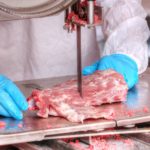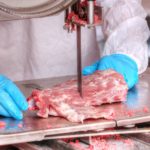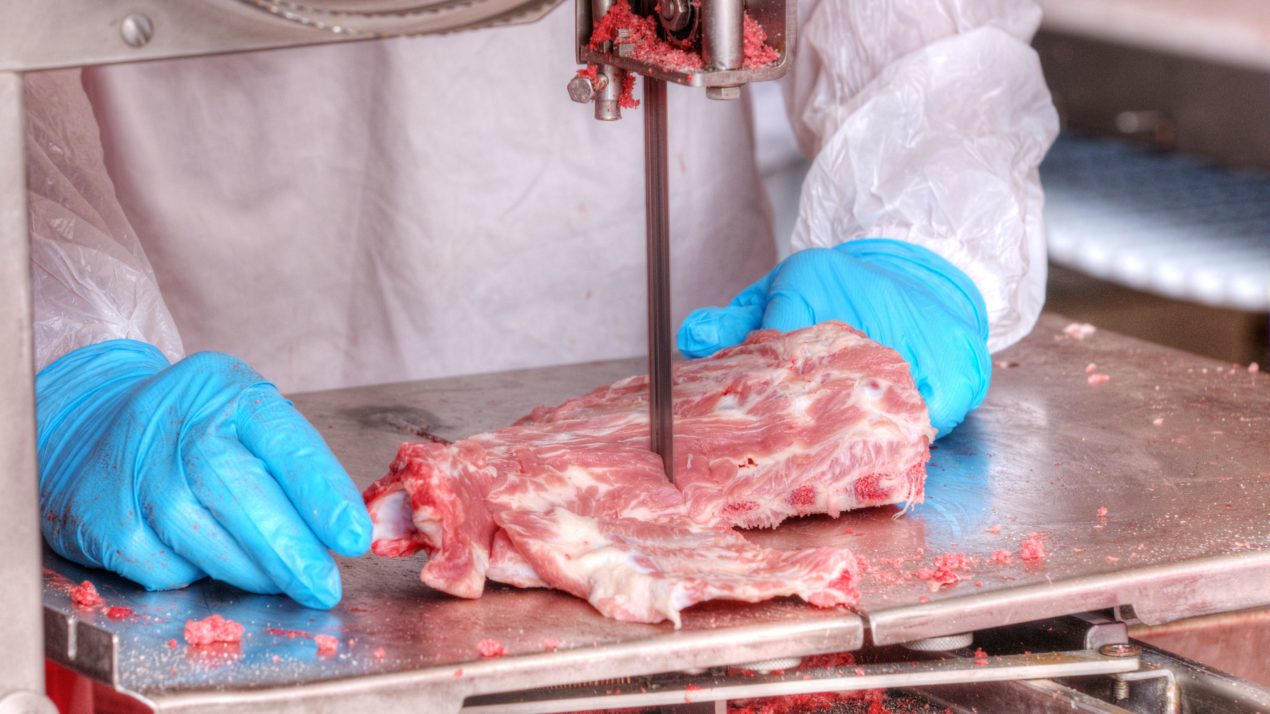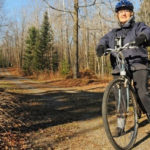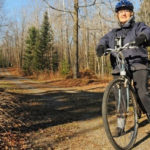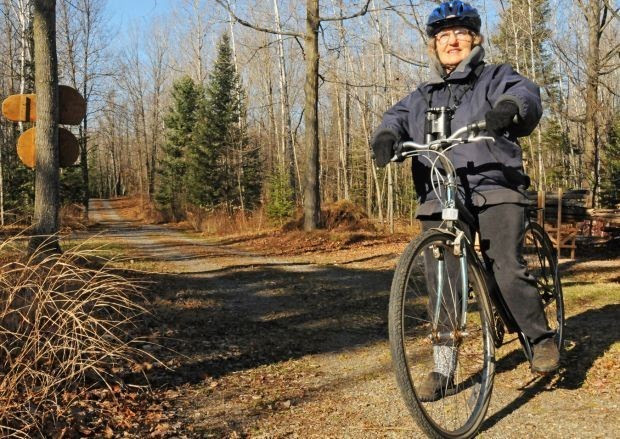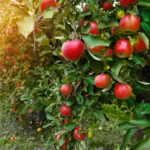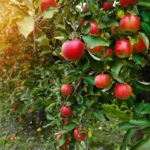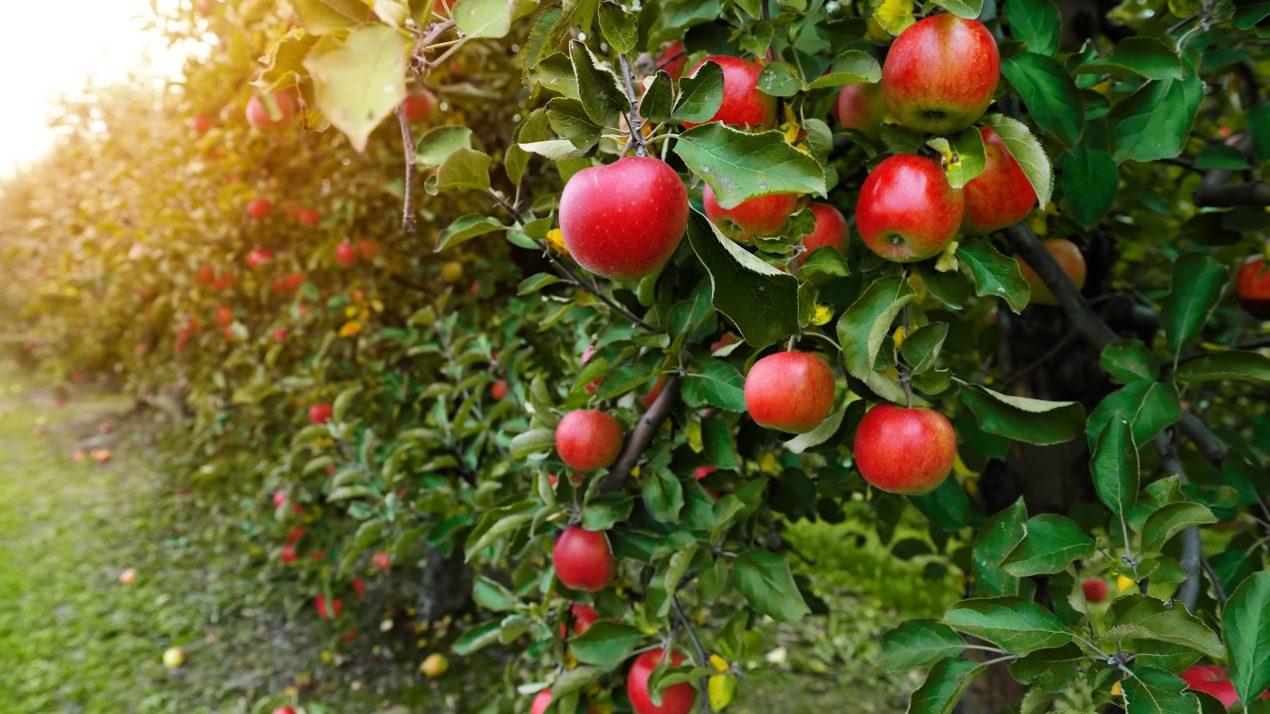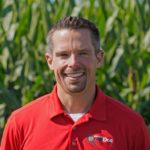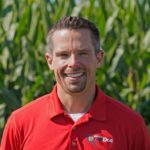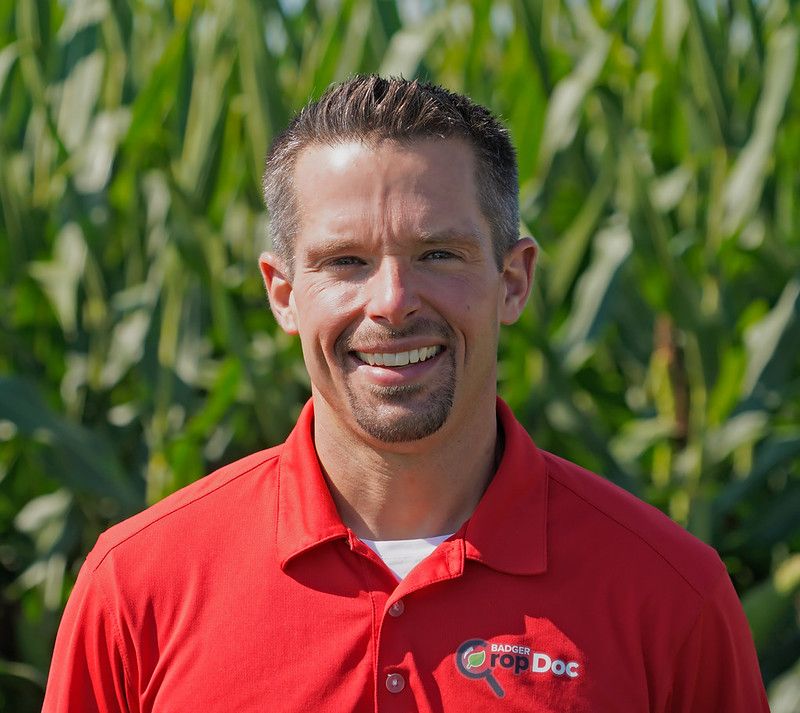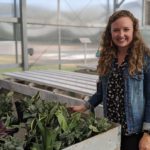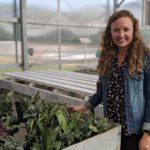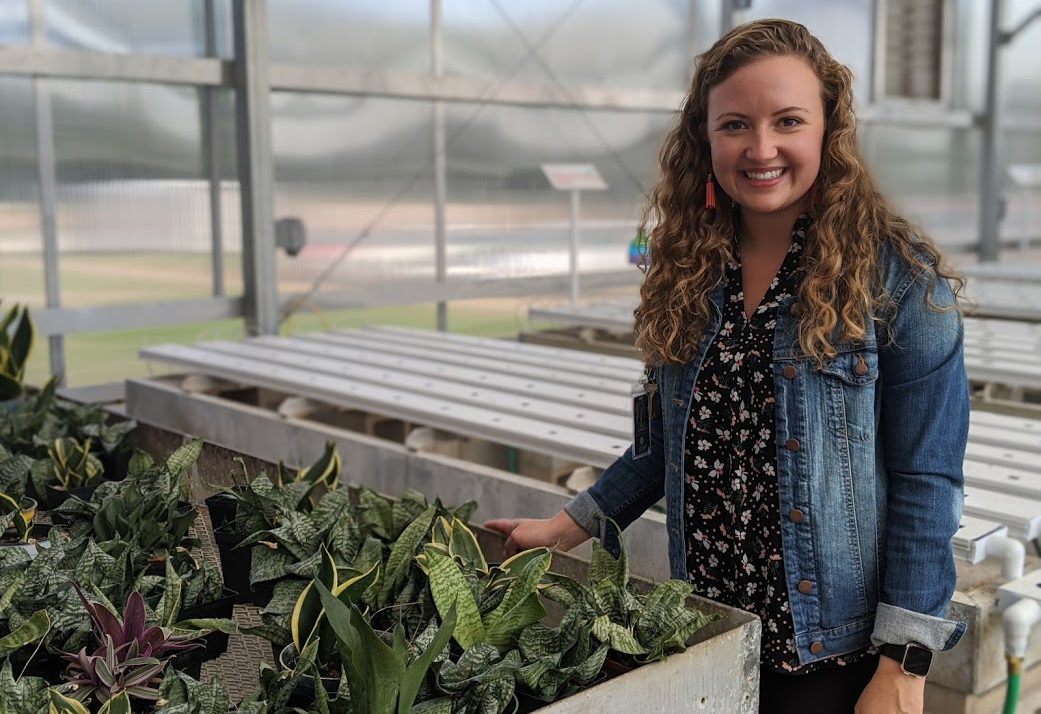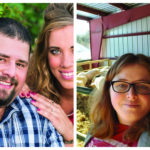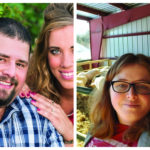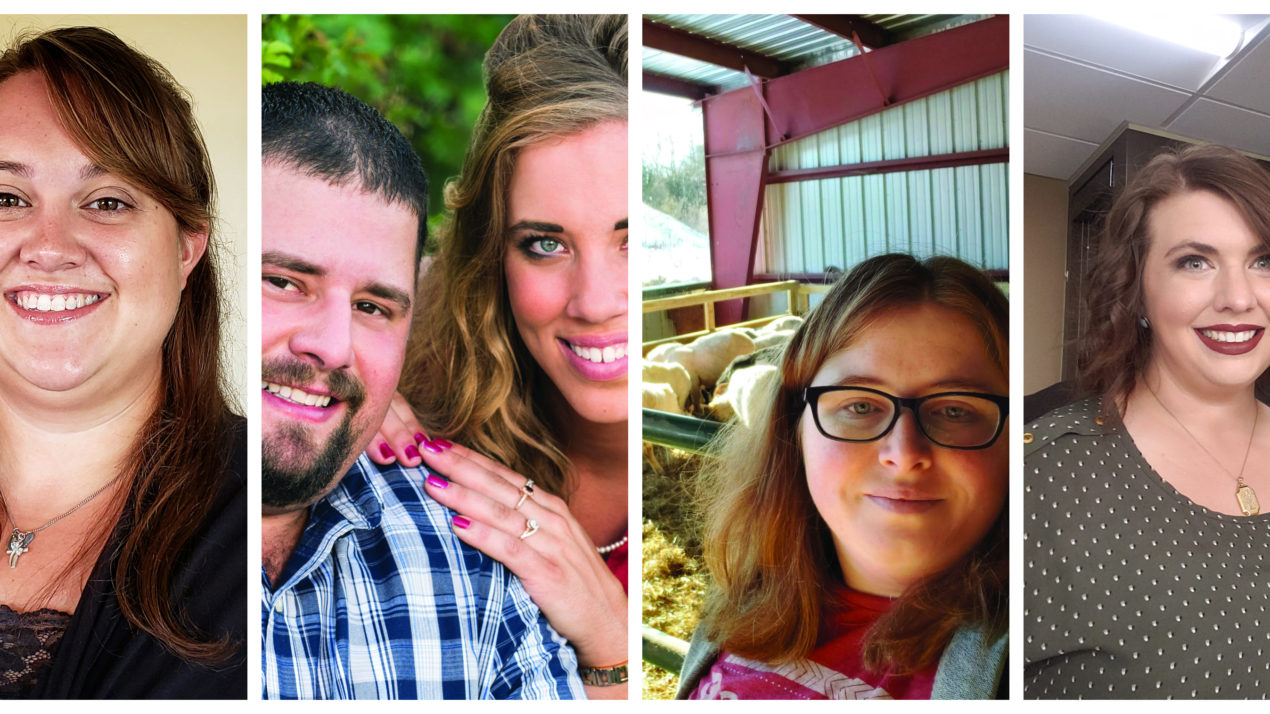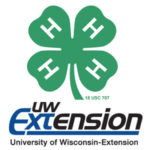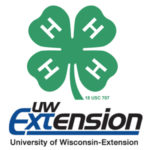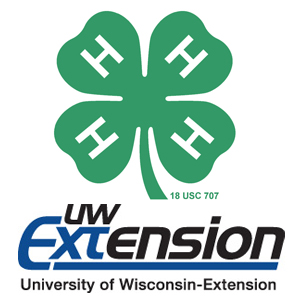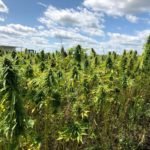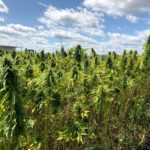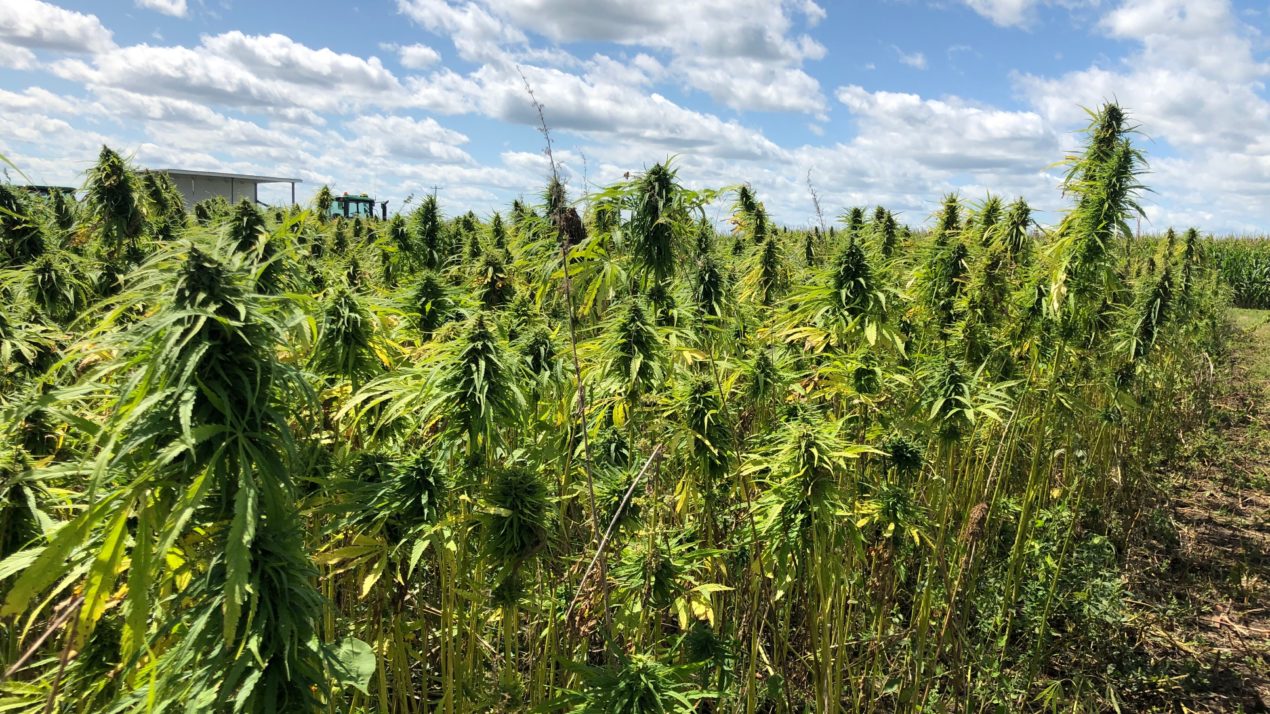DATCP and Elections Commission Help Consumers Avoid Election Scams
With the November 3 general election rapidly approaching, many groups are reaching out to Wisconsin voters, most legitimate but some not. Some contacts may look like scams but are just groups using poorly trained volunteers or bad data. Scammers are turning to election-related tactics to try to steal your money and identity. Voting scams trick you by mimicking legitimate activities that happen around elections. Some examples include:
Fraudulent Donation Requests
Real: Political campaigns often call or text their supporters to ask for donations.
Scam: A scammer might use spoofing technology to use a legitimate phone number to impersonate a campaign representative.
How to avoid it: Be wary of unsolicited calls asking for donations. Only make donations through platforms you know and trust, such as the campaign’s official website. Avoid sending donations through another person or over the phone.
Imposter Election Surveys
Real: Research organizations conduct phone surveys throughout the election season to gauge voters’ interests, opinions, and perspectives.
Questionable: Some candidates and advocacy groups use fake polls or “push-polls” to influence your vote, or they may try to disguise who is responsible for the poll. Under state law, anyone conducting a poll is required to tell you the name and address of the person or committee paying for the poll, if you ask. If they won’t tell you who is paying for the poll, hang up.
Scam: Impersonators offer you a gift card or some other incentive to participate in a fake survey, but first they need your personal information, such as a credit card number, date of birth, or social security number.
How to avoid it: Do not rely on Caller ID; scammers can “spoof” the phone number of a legitimate organization to make it appear as though the call is a genuine campaign contact. Never provide account or credit card information to anyone you did not reach out to, especially someone claiming you can win a prize.
Registering to Vote
Real: Volunteers or staff from civic and political organizations may contact potential voters through calls, texts, social media, or even in-person to help drive voter registration and turnout.
Questionable: Some organizations with incorrect data may contact you in the belief that you have been removed from the voter list and offer to reregister you. They may direct you to a website that collects personal information, which they use to contact you with reminders and political messages.
Scam: Scammers also make alarming claims and pretend to alert you to an expired voter registration as a phishing attempt. The scammer then offers to register you, and during the process collects a large amount of personal information they may use to steal your identity.
How to avoid it: The Wisconsin Elections Commission or your local clerk’s office will not text you with voter registration alerts, so you may ignore these kinds of text messages. Unofficial websites seeking personal information to check your voter registration status or register you to vote should be avoided. You can securely register, check your registration status, and find trusted information on the MyVote Wisconsin website at https://myvote.wi.gov. You can also register by mail, in-person at your local municipal clerk’s office, or at the polling place on Election Day. Your municipal clerk’s office is another trusted source of information.
Voting by Absentee Ballot
Real: On September 1, the Wisconsin Elections Commission mailed an educational packet to all registered voters who had not already applied for an absentee ballot.
You can request an absentee ballot online at https://myvote.wi.gov or you can fill out the paper application form included in the mailing and submit it using the postage-paid return envelope. You should request your ballot as far in advance of the election as possible. The legal deadline for your application to be received is Thursday, October 29, 2020; however, voters should request them much earlier due to USPS requirements for one week to deliver mail in each direction.
Also Real: Political parties and candidates may also mail out absentee ballot requests to their supporters. They may also email, text, or call you with messages urging you to return your absentee ballot. State law allows them to purchase lists of voters who have requested absentee ballots.
Questionable: Independent groups send out texts offering to send you an absentee ballot when it is really an absentee ballot application. Groups also send out mailers with absentee ballot forms which may appear to be from your municipal clerk’s office. Some of these forms are already partially filled out with names and addresses, some of which may be incorrect due to faulty mailing lists. Sometimes they claim you have not already requested an absentee ballot or the return addresses for clerks are incorrect. Also, the requirements for voters to provide a copy of their photo ID with the application are not always clearly stated.
Scams: If a call or text claims to be coming from a government entity and offers an absentee ballot for people who cannot or do not want to go to the polls on Election Day, it may be a scam. Scammers may be using this as a ruse to collect a large amount of personal information and steal your identity.
How to avoid it: Never provide personally identifying information or account numbers to a person who contacts you unexpectedly. If you have questions about voting by absentee ballot, you can contact your local municipal clerk or visit MyVote Wisconsin at https://myvote.wi.gov.
For additional information on scams and consumer issues, or to file a consumer complaint, visit the Department of Agriculture, Trade and Consumer Protection (DATCP) at http://datcp.wi.gov, send an e-mail to [email protected], or call DATCP’s Consumer Protection Hotline toll-free at 1-800-422-7128.
For concerns regarding Wisconsin elections, more information can be found at https://elections.wi.gov/complaints.
Shoring Up Local Processing Options
Representatives Chellie Pingree (D-ME) and Jeff Fortenberry (R-NE) introduced The Strengthening Local Processing Act, a comprehensive bill that addresses acute livestock supply chain issues and supports small meat and poultry processing plants, and issues the following statement in support of the legislation: “NSAC applauds Representatives Pingree and Fortenberry for leading the way on this bill, which reflects real needs for small processing plants and will foster a stronger sustainable livestock sector overall. NSAC and small processors across the country are excited to see the introduction of this bill, which reflects key priorities identified by the Coalition’s members and partners engaged in the small-scale processing sector.”
The bill includes support for small plants’ compliance with Hazard Analysis and Critical Control Points (HACCP) plans; increased cost share for state meat and poultry inspection programs; increased cost share and expansion of the Cooperative Interstate Shipment Program; a grant program to expand small plants, including small and very small federally inspected plants; and an education and training grant program.
“Based on NMPAN’s 12 years of research, education, and providing technical assistance related to the viability of small and mid-scale meat processors, our organization finds that the provisions of the proposed ‘Strengthening Local Processing Act’ are thoughtfully designed and will address persistent challenges that our processor members frequently share with us,” said Rebecca Thistlethwaite, Director of the Niche Meat Processors Assistance Network. “We think it gets at some of the core and complex challenges in the sector that many other bills have not addressed.”
“The Strengthening Local Processing Act offers necessary resources that small-scale USDA facilities like ours have been advocating for. The appropriate allocation of these resources, as proposed in the Strengthening Local Processing Act, will allow establishments like ours to continue to survive and thrive during these immensely challenging times,” said Nichole Sargent, Owner, Southpaw Packing Company, INC. DBA Windham Butcher Shop, based in Windham, Maine.
“The Strengthening Local Processing Act has the potential to have a large impact on small processors and farmers. It can help create resiliency in the food supply and additionally support rural communities,” said Andy Shaw, CEO Cypress Valley Meat Company and Natural State Processing, of Clinton, Arkansas.
Kevin Barnhill, owner of the Blair Meat Market in Blair, Nebraska, offered: “The Strengthening Local Processing Act is a winning proposal. Business owners will appreciate the targeted assistance. Farmers will profit from increased market opportunities. Consumers will benefit most of all from access to fresh and local foods.”
“The programs created and increased in this bill are absolutely necessary for the safe processing and distribution of meat in our nation,” said Ben Meyer, co-owner at Revel Meat Company in Canby, Oregon. “As we have seen in the past year, relying on large consolidated meat processing facilities to dominate our domestic markets leave consumers at dangerous risk of losing access to safe, clean meat from the local ranchers who produce it.”
Small processors were also excited to see a focus on scale-appropriate regulations, and support for education of the next generation of small-scale, niche meat processors.
“It provides financial relief for required food safety activities, reducing the regulatory burden on small companies with limited resources,” said Jim Wells, CEO of the North American Bison, LLC in New Rockford, North Dakota. “This financial support for the colleges and universities would be used to develop curriculum and programs in meats and meat processing, resulting in a more competent and resilient workforce for bison processors.”
For more information, see the one-page bill summary here.
E-Bird Goes Over One Million
Ranked second nationally in birdwatching participation and a longtime high flyer in bird monitoring, conservation and citizen science, Wisconsin has added another feather to its cap. The state’s bird lovers have submitted more than one million checklists to eBird, the popular online platform for reporting bird observations.
Birders can use a customized eBird platform for Wisconsin to submit checklists encompassing all the bird species they see at a given place and time, whether watching birds at their feeder or rare sightings in the field.
Only one state with a smaller population — Oregon — has reached this feat.
“Reaching the one-million checklist mark is a big accomplishment,” said Ryan Brady, avian citizen-science coordinator for Wisconsin Department of Natural Resources. “When it comes to bird monitoring, there is strength in numbers, and the more data we get from a broader swath of individuals, the more our sightings can make a difference for birds.”
That information has become increasingly valuable in avian research and conservation and gives birders an electronic journal to track the birds they see over the years. They can also explore data from all users, revealing birding hot spots in any given area, when to expect certain species to arrive or depart and where specific target species have been sighted.
“It’s inspiring to see such a tremendous wealth of information about Wisconsin’s birds,” said Ian Davies, eBird coordinator for the Cornell Lab of Ornithology.
Davies noted that Wisconsin surpassing one million checklists is a testament to the incredible contributions of the Wisconsin birding community.
Legendary Florence County Birder Leads The Way
Those familiar with birding in Wisconsin will not be surprised to learn that the milestone checklist was submitted by legendary birder Kay Kavanagh, a Florence County resident with over 22,000 checklists to her name — more than any other birder in Wisconsin.
Kavanagh was a significant contributor to the Wisconsin Breeding Bird Atlas II. This comprehensive five-year survey engaged more than 2,000 volunteers in surveying over 1,300 specific blocks of land to document bird species nesting in Wisconsin. She surveyed much of her home county for the atlas; an astonishing 93% of checklists from that county are hers. She also surveyed nearby counties with a few volunteers.
Pioneering Use Of eBird To Inform Bird Conservation
Wisconsin was an early leader in promoting the tool and soon became one of the first states to develop its customized portal to the eBird database, Wisconsin eBird. eBird was released in 2002 and gained popularity later that decade. After years of ranking near the top in submitted checklists, Wisconsin pioneered another novel effort by becoming the first state to use an integrated eBird platform for collecting breeding bird atlas data.
“eBird was critical as a data collection tool to the success of the Atlas and has been equally valuable in tracking the distribution, movements, phenology and annual relative abundance of Wisconsin’s birds,” Brady said.
Information received from eBird reports help the Wisconsin DNR track the locations and status of rare bird populations, state property assessments and where and when to find hundreds of bird species. Land managers and other natural resource professionals also rely on publicly available eBird data from local parks, recreation areas or habitat projects.
“eBird is as fun as it is useful,” Brady said. “It’s pretty easy to get lost in the website for hours exploring all the maps, photos and recent sightings. Having fun while contributing your sightings for science is a win-win in my book.”
Visit the DNR’s website for more information on birding, birding conservation and eBird.
Unique Apples – While They Last
If you visit your local supermarket, you will find the most common apple varieties offered – Gala, Fuji, McIntosh, Honeycrisp and a few others. But, did you know Wisconsin grows around 300 varieties of apples? Many of these heirloom apples are excellent for fresh eating, cooking, baking or even apple cider. Some of these one-time favorite apples have lost their popularity but can still be found at Wisconsin’s apple orchards. Here are just a few of the more interesting varieties as described in The Illustrated History of Apples in the United States and Canada.
· Wolf River is an apple that originated in Wisconsin in 1852. So the story goes, a Quebec lumberman moved his family from Canada to Wisconsin. Along the way he purchased a bushel of apples. Saving the seed, he planted them near Fremont in Waupaca County on the Wolf River, hence the name. These large apples can grow up to one pound each and are excellent for baking. It has been said that one Wolf River apple will make a pie.
· Still a popular apple is the Fameuse or Snow apple. It is believed to have come from Canada around 1700 where trees were distributed throughout Quebec and northeast U.S. near Lake Erie by French missionaries. The name Snow apple may be due to its very white flesh, the fact the tree tolerates cold weather, or because the apples store well into the winter.
· The Lady apple is a very old apple originated in France but stories report that it may date back to Roman times. It is noted that the Lady apple was grown in the gardens of King Louis XIII in 1628. This small, sweet and highly aromatic apple was carried in the pockets of ladies at that time as a deodorant or perfume.
Stop by a Wisconsin apple orchard to try these and many other varieties of apples. Ask the grower to tell you about them. You may find some “new” favorites.
Can’t stop by the orchard? The Wisconsin Apple Growers Association is partnering with some of our family orchards to bring consumers a variety of Wisconsin-grown apples shipped right to your door! The Wisconsin Sampler Box contains a selection of favorite and heirloom apples. You may not get the apples mentioned above, but you will find some totally different varieties you may never have tasted.
Order your Wisconsin Sampler box at https://wisconsinapplegrowers.org/Fresh-Apples or call (920) 478-4277.
The apple varieties in your box will be identified and you will be able to look them up on the Association’s website and learn more about them.
It also makes a great gift to family and friends.
Smith Will Lead Nutrient & Pest Management Program
Damon Smith, an associate professor and field crop pathology extension specialist in the Department of Plant Pathology, has been named the faculty director of the Nutrient and Pest Management Program at the University of Wisconsin—Madison.
The Extension-funded Nutrient and Pest Management Program (NPM) was established in 1989 with a mission to promote agricultural practices for protecting water quality while maintaining or improving farm profitability in collaboration with a wide range of partners. Focused on profitability, practicality and environmental sustainability of crop production practices and cropping systems, the program links Wisconsin farmers, the agricultural professionals who assist them and UW researchers, allowing for a robust exchange of knowledge.
Smith was drawn to the role as an opportunity to deploy research to a wider audience. “I am very interested in extending valuable research-based tools to the general public where they can be used for the greater good,” he says.
Through his Extension role at UW, Smith has collaborated closely with the NPM program over the years to develop three smartphone applications to assist farmers in forecasting plant disease occurrence based on GPS-referenced weather data. These tools leverage cloud-based weather data for specific sites along with proven statistical models to predict plant disease. His Sporecaster app, which models white mold on soybean, has been downloaded more than 6,000 times and was recognized for excellence in community education materials by the Agronomy Society of America.
Smith has been a member of the faculty in the plant pathology department for eight years. Prior to coming to UW, he was as assistant professor and extension specialist in the Department of Entomology and Plant Pathology at Oklahoma State University for five years. He received his M.S. and Ph.D. in plant pathology at North Carolina State University and a B.S. in biology at SUNY Geneseo.
In the role of director, Smith will lead a team of nine staff, including a program manager, five regional specialists, one researcher and two support staff. He will also work with the advisory body called the Integrated Crop and Pest Management Technical Advisory Committee, which includes representatives from state and federal agencies, along with private farmers.
“We had a deep pool of well-qualified candidates for the position, making the choice of the director a difficult one,” says Doug Reinemann, the associate dean for extension and outreach in the College of Agricultural and Life Sciences. “The NPM program has a long history of excellence in developing and delivering extension programs. Damon articulated a vision and plan to continue this tradition and expand and adapt nutrient and pest management programs to meet research and extension needs in this increasingly important area.”
Smith will assume the role on Oct. 1, 2020.
Growing new interest in agriculture, Joelle Liddane shifts gears to teach in a pandemic
Although students are not physically in class at the Holmen School District, the building is abuzz with change.
Between COVID-19 and renovations from a $23.5 million referendum, the hallways are drastically different for the Holmen Vikings. Adding her enthusiasm to the transition in an abnormal year, Joelle Liddane is making her mark as the new agriculture education teacher.
Liddane grew up on her family’s dairy and beef farm on the north side of Tomah. She was involved in sports, academics, and of course, agriculture. FFA provided endless opportunities, and she eventually served as a State FFA officer in 2015 to 2016. She then attended UW-River Falls for agricultural education and quickly gained classroom experience intern-teaching in Chippewa Falls. She accepted a mid-year job opening to teach in Clintonville, Wis. before taking the full-time position in Tomah.
“I grew up in the same district and section as Holmen for FFA, so we would compete against Holmen,” Liddane said. “Everybody knew Holmen because they were great at Parli Pro. I was able to come here and visit and get a feel for the community. I knew that if it would work out, this would be a really great place to be.”
Timing was also key as the previous agriculture teacher, Roger King, retired in the past year and left the legacy of a strong agriculture program. However, teaching such a hands-on topic online required a creative approach.
A big part of her excitement for the position grows with the district’s Farm to School Program. The school’s new greenhouse helps provide fresh vegetables for students. Liddane gestured to their asparagus garden and noted FFA members are growing beef and pork on their farms that will be used in the school lunch program. She credited their ability to work independently on these supervised agricultural experiences.
“I had a student call Craig’s Meats to get our spot,” Liddane said. “She actually reached out to me this summer saying, ‘I’m having a hard time with all of the processing.’ That’s a 16 to 17-year-old that understands the food chain, and that was a really cool thing to see.”
Liddane has found unique ways to adapt with her students. For instance, she challenged her greenhouse class, which is a transcripted credit with Western Technical College, to find monocots and dicots. They were able to identify grasses and bulbs in their own backyards.
There is no end date on COVID-19, but when students do return, they will step into classrooms currently being updated through the referendum. The agriculture shop will have increased space that could possibly house large animal visitors.
“I don’t foresee them living here long term, but at least for classes, we will be able to have that hands-on learning,” Liddane said.
She also looked forward to bringing the entire agriculture department into one section of the school so that she can see students working in the greenhouse while teaching in the classroom.
Liddane’s FFA students are still meeting virtually. One silver lining of not having as many in-person activities is that Liddane can connect new students to agriculture. Since her calendar is more open, she volunteered to be the assistant Cross Country coach for Holmen girls.
“It has been really neat for me being new to the area since I can meet more people,” Liddane said. “I was talking with one of my students, and he said it would be cool to learn how to tap trees. That is a connection that we would not have had prior to me becoming part of the community.”
Her chapter in Holmen is just beginning, but her goal as a young educator is to continue letting students have some control over their own agriculture story whether they are interested in honeybees, landscaping, welding, or any part of the food and natural resources system.
“I’m really eager for a lot of things to be able to happen all at once,” Liddane said. “I can feel this is already becoming my home, and I can’t wait for the opportunities that we can have here.”
Liddane said the biggest way the community can help in this year of change is to create partnerships that can give students learning or employment opportunities.
Op-Ed: Food System Should Work for Main Street, Not Wall Street
Today, the United Food and Commercial Workers (UFCW) Local 1473 and Wisconsin Farmers Union (WFU) jointly called on federal, state, and local governments to take stronger steps to better protect from adverse impacts of COVID-19 the health, safety and livelihoods of the farmers and workers who put food on our table. The groups also called for new economic development strategies that empower workers to bargain collectively for better wages and safer worker conditions, and that empower farmers to get fairer share of the food dollar.
“Empowering farmers to get a fair price, and workers to get a fair wage, is a trickle-up economic strategy,” said John Eiden, president of UFCW Local 1473. “It is based on the sound premise that Wisconsin’s farmers and workers are more likely to spend that extra money with local businesses than are the out-of-state agribusiness conglomerates whose business model is based on paying farmers and workers as little as they can to provide ever higher returns to their shareholders. Our strategy will make Main Street the priority over Wall Street.”
“The pandemic has shown with brutal clarity that the meat supply chain works to benefit a handful of multinational corporations, while workers and family farmers are treated as expendable,” said Wisconsin Farmers Union President Darin Von Ruden. “Government at every level has a role to play in restoring this balance of power that has shifted too far in favor of the agribusiness monopolies. The straightforward policies we advocate can begin to accomplish that today.”
The farmer-labor alliance of Farmers Union and UFCW is calling for immediate interventions to protect workers from harm due to COVID-19 and insulate family farmers from economic loss, including : (1) increased worker testing at meatpacking plants, (2) priority access to PPE for all meatpacking workers, (3) halting line speed waivers, (4) mandating social distancing inside meatpacking plants, and (5) isolating workers with symptoms or who test positive for COVID-19;and (6) relief payments prioritizing small and medium-sized farms and not accelerating the problem of oversupply and consolidation.
The groups are also demanding the following actions be taken to repair structural weaknesses in our economy that have now been exposed by the COVID pandemic. These include strengthening workers’ right to freedom of association, organize a union and bargain collectively for better wages, and safer working conditions for workers. The groups also call for fairer prices and markets for farmers through stronger antitrust enforcement, reinstatement of Country of Origin Labeling (COOL), and dairy supply management.
Farm Bureau Announces Four Excellence in Ag Finalists
Four individuals have been selected as Wisconsin Farm Bureau’s Excellence in Ag finalists and will compete in November for the top honor.
The Excellence in Ag award recognizes members of Farm Bureau’s Young Farmer and Agriculturist Program who excel in their leadership abilities and involvement in agriculture, Farm Bureau and other civic and service organizations.
“We have four outstanding agricultural advocates in this year’s state competition,” said Joe Bragger, WFBF President. “This contest highlights these individuals and how they have positively impacted Wisconsin agriculture and Farm Bureau and inspire others to do the same.”
The four finalists are:
- Stephanie Abts of Manitowoc County. Stephanie is a dairy nutritionist at Rio Creek Feed Mill, Inc.
- Natasha Paris of Green Lake County. Natasha is the agriculture teacher and FFA advisor in Ripon.
- Julie Wadzinski of Barron County. Julie is a farm operations instructor at Wisconsin Indianhead Technical College.
- Kellie Zahn of Shawano County. Kellie is an agriculture agent at the Stockbridge-Munsee Community.
Excellence in Ag award applicants are agriculturists who have not derived a majority of their income from a farm (that they own) for the past three years. Examples of occupations of past finalists include agricultural education instructor, fertilizer salesperson, veterinarian, farm employee, journalist and marketer.
Each finalist must make a presentation and answer questions for a panel of judges. Due to COVID-19 restrictions, this year’s contest will be held virtually. This year’s state winner will compete at the American Farm Bureau Federation’s 2021 Annual Convention.
The Wisconsin Farm Bureau Foundation co-sponsors this contest with GROWMARK Inc. and Rural Mutual Insurance Company. Farm Bureau’s YFA program is open to members between the ages of 18 and 35. Information and applications for all YFA contests can be downloaded from wfbf.com.
Last year’s Excellence in Ag award recipient was Ben Huber from Green County.
2020 4-H Virtual Livestock Judging and Meats Judging Contests Announced
Please spread the word about this virtual opportunity to all Wisconsin youth interested in livestock. The 2020 Wisconsin 4-H Virtual Livestock Judging Contest will occur on Sunday, October 18th, 2:30- 6:00pm. All youth are welcome to participate. 4-H membership not required.
Juniors (age 8-13) and Seniors (age 14-19) are invited register as individuals to participate and display their livestock evaluation skills in this competitive educational experience. Youth will judge classes and enter placings through www.LivestockJudging.com. Seniors will present oral reasons via Zoom.
Juniors and Seniors will also answer questions for a portion of the classes through Livestockjudging.com. With the cancellation of all national 4-H livestock judging contests in 2020 These will be stand-alone, non-qualifying state educational contests.
No cost to enter! Registration available at this link: https://uwmadison.co1.qualtrics.com/jfe/form/SV_6hzcm6iHKWG3J89
Registration Deadline: October 12, 2020.
SAVE THE DATE for the WI 4-H Virtual Meats Judging Contest on Saturday, November 22nd!
Registration and details coming soon. More information at https://fyi.extension.wisc.edu/wi4haganimalscience/livestock/ Please direct all questions to Joe Muellenberg at [email protected] or Bernie O’Rourke at [email protected]
State’s Hemp Program to Begin New Rules on November 1st
Currently, the Wisconsin Hemp Pilot Research Program is operating under the authority of the 2014 Farm Bill, 2017 Wisconsin Act 100, and 2019 Wisconsin Act 68. The program has operated under the 2014 Farm Bill for the last three years and will continue to operate under the 2014 Farm Bill until October 31, 2020.
Under the 2018 Farm Bill, the authority for the pilot research program expires on October 31, 2020. Wisconsin must have a U.S. Department of Agriculture (USDA)-approved state plan in place to continue state-licensed hemp production. The plan must be compliant with the 2018 Farm Bill and USDA’s interim final rule for hemp production.
The Wisconsin Department of Agriculture, Trade and Consumer Protection (DATCP) has submitted a proposed state plan to USDA and USDA is currently reviewing the plan. Pending USDA’s approval of Wisconsin’s state plan for hemp production, new hemp program rules will start November 1, 2020.
New Hemp Program Rules Start November 1
Current hemp licensees should make note of the following in regards to expected program changes starting November 1, 2020:
- DATCP will automatically provide a transitional license to you at no cost. The transitional license covers the time period from November 1-December 31, 2020. This allows for you to maintain your 2020 license and registration through the end of the current license period.
- Hemp lot samples collected by DATCP on or before October 31, 2020, will have THC test results determined under the pilot program rules. Hemp lot samples collected by DATCP on and after November 1, 2020, will be subject to new rules that result in lower acceptable hemp THC levels.
- As required by new federal rules, the method DATCP uses for testing and calculating THC levels will not change, but the way DATCP assesses the result as a pass or a fail is changing.
- Starting November 1, 2020, DATCP must determine THC results using a laboratory margin of error, otherwise referred to as a measurement of uncertainty. This provides a range on either side of the actual result. If 0.300% is included within this range, the sample passes regulatory testing.
- For example, if a hemp sample’s reported THC content concentration level on a dry weight basis is 0.350% and the measurement of uncertainty is +/-0.0600%, the measured THC content concentration level on a dry weight basis for this sample ranges from 0.290% to 0.410%. Because 0.300% is within that distribution or range, the sample, and the lot it represents, is considered hemp.
- The required use of a measurement of uncertainty under the new rules will result in a smaller range for a passing THC level.
DATCP encourages current pilot program participants to have their hemp sampled and harvested before October 31, 2020.
Future Updates
DATCP will email updates about the hemp program transition to those who have signed-up to receive these notifications and to individuals licensed by DATCP. To sign-up for emails, visit DATCP’s email subscription service. Information will also be available on DATCP’s website at https://datcp.wi.gov/Pages/Programs_Services/HempTransition.aspx.
If you have questions, contact DATCP’s Hemp Pilot Research Program through either of the following:
Phone: Toll-free at (844) 449-4367
Email: [email protected]v




